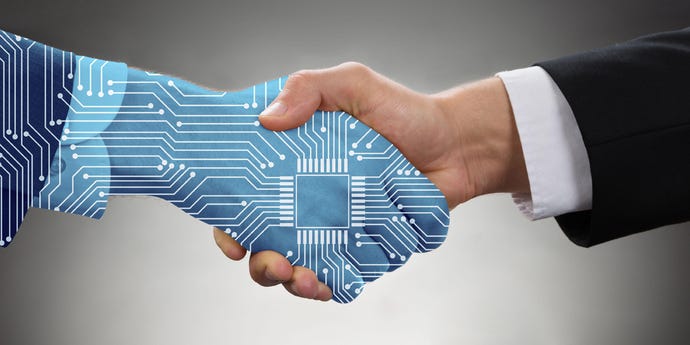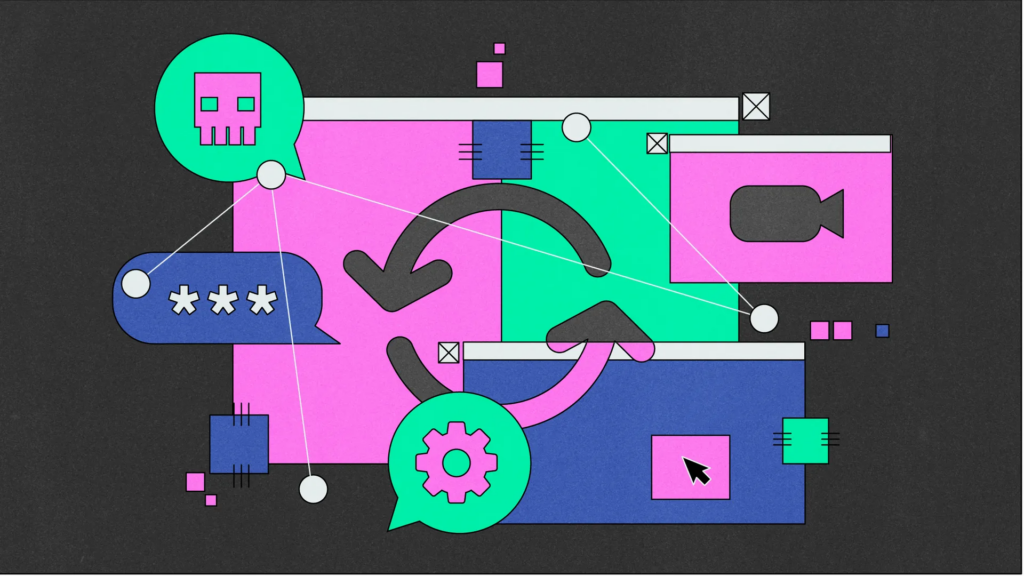AI-generated code, also known as “automated programming” or “program synthesis,” holds both immense power and potential danger. While it can revolutionize software development and increase productivity, it also raises concerns related to security, ethics, and the overall reliability of the generated code.
The power of AI-generated code lies in its ability to automate repetitive and time-consuming programming tasks. By leveraging machine learning techniques, AI models can analyze vast amounts of existing code, learn patterns, and generate new code based on the desired functionality. This can significantly speed up software development processes, allowing programmers to focus on higher-level tasks.
Moreover, AI-generated code has the potential to enhance code quality by reducing human errors. It can assist developers in finding bugs, suggesting optimizations, and adhering to coding standards and best practices. This can lead to more robust and efficient software systems.
However, the danger of AI-generated code primarily arises from its lack of comprehension and potential biases. While AI models can mimic patterns and generate code, they often lack a deep understanding of the context and objectives of the software being developed. This can result in code that functions correctly in some cases but fails to handle unforeseen scenarios or edge cases adequately.
Furthermore, the biases present in the training data used to train AI models can propagate into the generated code. If the training data contains biased or discriminatory practices, the AI-generated code may inadvertently reflect and perpetuate these biases, leading to unfair or unethical outcomes.
Another concern is security. AI-generated code can introduce vulnerabilities if it inadvertently produces insecure implementations. The complexity of software systems makes it challenging to identify all potential security risks automatically. Relying solely on AI-generated code without thorough manual review and testing could expose applications to critical security breaches.
To mitigate these risks, it is crucial to have human oversight and intervention throughout the AI-generated code development process. Developers should review and validate the generated code, perform rigorous testing, and consider potential ethical implications and security concerns.
Regulatory frameworks and industry standards should also be established to address the responsible use of AI-generated code. These frameworks can help ensure transparency, accountability, and adherence to ethical guidelines when deploying AI systems in software development.
AI-generated code has enormous potential to revolutionize software development, but it also poses significant risks. It is essential to strike a balance between leveraging AI’s capabilities and human expertise to ensure the reliability, security, and ethical use of AI-generated code in the future.

Pros of AI-Generated Code:
- Increased productivity: AI-generated code can automate repetitive and time-consuming programming tasks, accelerating software development processes and freeing up developers’ time to focus on higher-level tasks.
- Code quality improvement: AI models can assist in bug detection, code optimization, and adherence to coding standards, leading to more robust and efficient software systems with reduced human errors.
- Rapid prototyping: AI-generated code can quickly generate prototypes and proof-of-concept implementations, enabling faster experimentation and iteration in the development process.
- Enhanced software maintenance: AI-generated code can facilitate code refactoring and maintenance by suggesting improvements, identifying obsolete code sections, and automatically adapting to changes in requirements or dependencies.
- Knowledge transfer: AI-generated code can serve as a learning tool for novice programmers, providing examples, guidance, and insights into coding practices and patterns.
Cons of AI-Generated Code:
- Lack of contextual understanding: AI models often lack a deep understanding of the context, objectives, and constraints of the software being developed. This can result in code that functions correctly in some cases but fails to handle unforeseen scenarios or edge cases adequately.
- Potential biases: Biases present in the training data used to train AI models can propagate into the generated code, leading to unfair or discriminatory outcomes.
- Security vulnerabilities: AI-generated code may inadvertently produce insecure implementations, exposing applications to potential security breaches. The complexity of software systems makes it challenging to identify all potential security risks automatically.
- Reliance on quality of training data: The quality and representativeness of the training data used to train AI models greatly impact the quality and reliability of the generated code. Incomplete or biased training data can limit the effectiveness of AI-generated code.
- Ethical concerns: AI-generated code raises ethical questions, such as intellectual property rights, accountability, and the responsible use of AI systems. Clear guidelines and ethical frameworks are necessary to address these concerns.
- Dependency on human oversight: Despite the automation benefits, AI-generated code still requires human intervention and oversight to validate, review, and test the generated code thoroughly. Overreliance on AI-generated code without proper scrutiny can lead to unreliable or faulty implementations.
It is important to consider these pros and cons when adopting AI-generated code and to develop appropriate safeguards, guidelines, and practices to ensure responsible and effective utilization of this technology.
Q: What is AI-generated code? A: AI-generated code, also known as automated programming or program synthesis, refers to the use of artificial intelligence techniques, such as machine learning, to automatically generate computer code. AI models analyze existing code, learn patterns, and generate new code based on desired functionality or objectives.
Q: How does AI-generated code benefit software development? A: AI-generated code offers several benefits to software development, including increased productivity by automating repetitive tasks, improved code quality through bug detection and optimization suggestions, rapid prototyping for faster experimentation, and enhanced software maintenance through code refactoring assistance.
Q: What are the risks of AI-generated code? A: The risks of AI-generated code include the lack of contextual understanding, potentially propagating biases present in the training data, introducing security vulnerabilities if insecure implementations are generated, reliance on the quality of training data, ethical concerns, and the need for human oversight to validate and review the generated code.
Q: Can AI-generated code replace human programmers? A: AI-generated code is not a replacement for human programmers. While it can automate certain programming tasks, it currently lacks the ability to understand complex contexts and objectives, handle unforeseen scenarios, and make high-level decisions. Human programmers are still essential for critical thinking, creativity, and ensuring the reliability, security, and ethical use of AI-generated code.
Q: How can biases be addressed in AI-generated code? A: Addressing biases in AI-generated code requires careful consideration of the training data used to train the AI models. It is crucial to ensure the training data is diverse, representative, and free from biases. Additionally, ongoing monitoring and auditing of the AI models and generated code, as well as incorporating ethical guidelines and standards, can help mitigate biases.
Q: Are there any guidelines or regulations for the use of AI-generated code? A: The field of AI ethics and regulations is rapidly evolving. Various organizations and initiatives are working on developing guidelines and frameworks for the responsible use of AI, including AI-generated code. Governments and industry bodies are also exploring the development of regulations to address the ethical and legal aspects of AI applications.
Q: How can the potential security risks of AI-generated code be mitigated? A: To mitigate security risks, AI-generated code should undergo thorough manual review and testing by human programmers. The development process should include security-focused testing and analysis to identify and address potential vulnerabilities. Incorporating secure coding practices, such as input validation and secure data handling, is also essential to minimize security risks in AI-generated code.
Q: What role does human oversight play in AI-generated code? A: Human oversight is critical in the development and deployment of AI-generated code. Human programmers provide expertise, review and validate the generated code, ensure adherence to coding standards, and address complex contextual issues that AI models may not fully comprehend. Human oversight helps to enhance the reliability, security, and ethical aspects of AI-generated code.
Read More : How AI Will Transform the Real Estate Market





